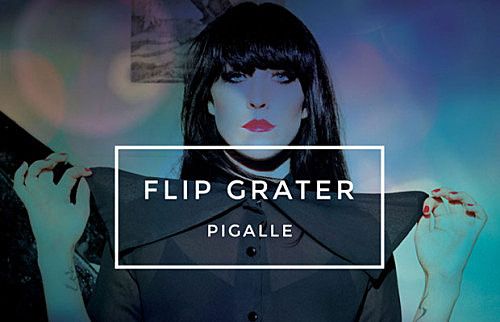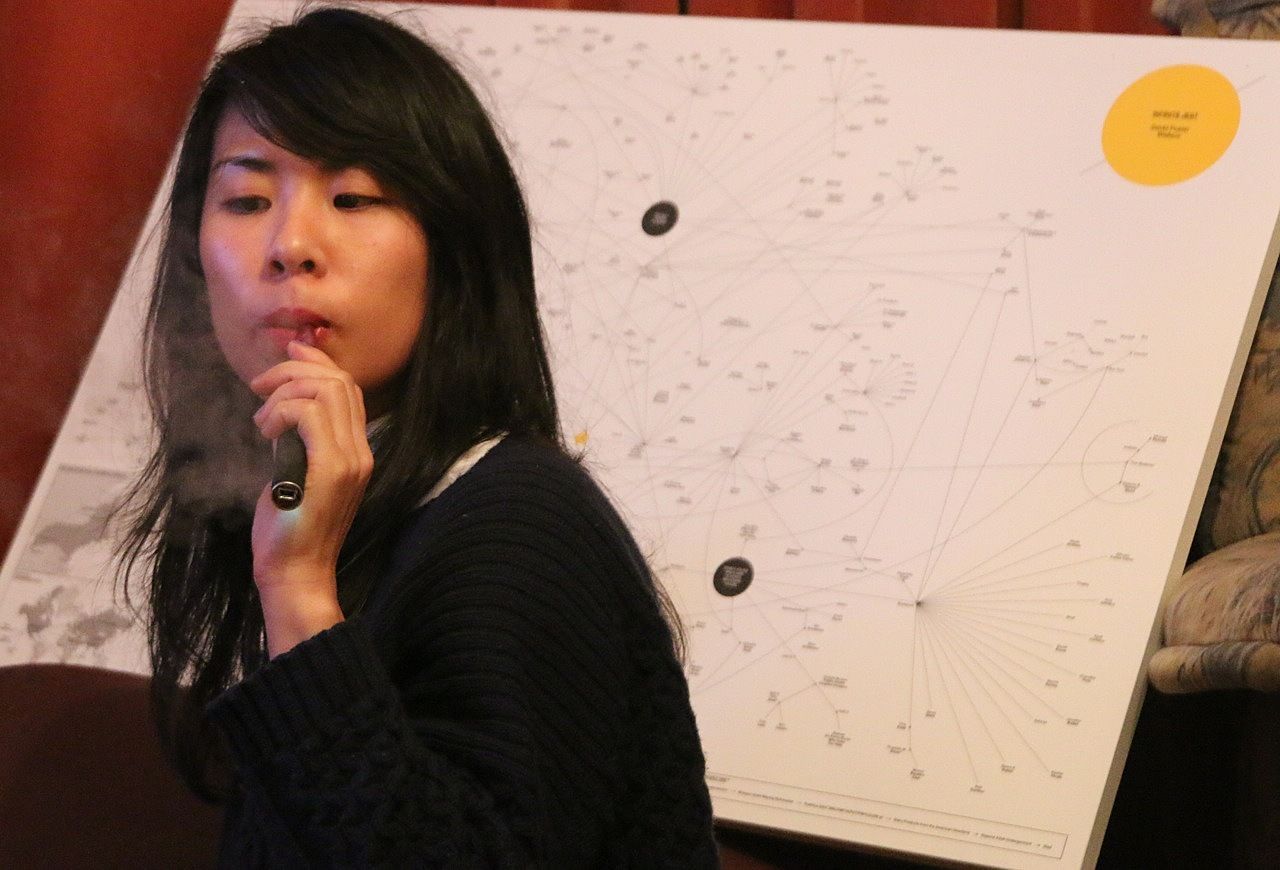Review: Flip Grater, 'Pigalle'
Clare Grater's fourth album bears all the trappings of its smoky, languorous and frequently lovelorn European settings. But despite having all the right ingredients, it feels like something's missing.
We live in an era where we’re spoilt for choice by an enormous number of female singer-songwriters. Some of these women are unsafe at any volume, strange and furious itinerants – but most of the straightforward success and acclaim goes to the folk artists: the ones with the baroque instrumentation, the husky vocals, soft, gentle, soothing tunefulness. The ones that evoke romantic images of a brunette chanteuse swaying in a smoky coffee-house in Paris, tenderly caressing the mic and nonchalantly sipping Bordeaux in between verses. You know the score. Internationally, we have Feist, Laura Veirs, Joanna Newsom at her more concise, Laura Marling. Locally, you’ve got Tiny Ruins, Luckless. Meanwhile, Flip Grater straddles the divide between local and international – on to her fourth album now, and based in France, where Pigalle was written and recorded (she’s also written two books on cooking, somewhere in there).
The big question of this genre, though: how do we tell them apart? Trying to find those differences is a gamble, partly because it involves multiple listens – time that could be rewarded with a grower, or wasted on something that’s simply hopelessly generic. The critical listener has to really try to pinpoint the details, the varying intensities that modulate each layer of each track, the confluence and combinations of instrumentation and dueling levels on which they play with one another, the ardour behind the vocals, and most importantly, the lyrics.
So playing the details game, what can I make of Clare Grater? Like Cat Power, she’s willing to sound instrumentally and vocally brittle sometimes. Like Feist, there’s a certain upbeat and pop-driven tonality. Like Joanna Newsom, she eschews a verse-chorus-verse conventionalism, even if there’s no harp or sixteen-minute suites to be found on here. But this is a lot of sustained influence-spotting – and when I try to put my finger on what she’s adding to the equation, I keep coming up short.
Grater is a local artist now based in Paris, and signed to record labels here, in Germany and France. But the continental touch, in practice, just means a lot of smoky and autumnal auditory signifiers – to fresh ears, she often sounds like a raspier and lower-pitched poor man's Feist. Unlike the rest of her generation of 'indie-acoustic-singer-songwriters', who have let humour, anger, or poptimism creep through, Grater dwells on a certain melancholy, and unfortunately, it feels more comfortable than haunting.
If melancholy is how you’re feeling, and listening to something melancholic is what you’re in the mood for, Pigalle can be charming. Huskiness is always preferable to infantile tweeness, and so it’s almost like a series of adult lullabies - excepting the first three tracks, which bite with a palpable and seething subtext. The first in particular, has a sense of urgency and propulsion, and along with the final track, 'To The Devil' - with the addition of a sonorous bass voice – come to the cusp of satisfaction. The album’s highlights are its bookends. But the rest is a little dull, like a recipe that didn’t quite bake through after all those hours.
The trainspotter looks for moments on records like this where there’s some sort of lyrical or musical catharsis that throws everything into relief – though Grater comes close, those moments on Pigalle never quite make it. 'Diggin' For The Devil’, the second track, breaks into slightly distorted electric guitar, groping towards some kind of dark, embittered spiritual connection. But it leaves you wanting, and if it’s possibly deliberate to hold off this early in the piece, it feels as if some sort of gratification has been forever delayed – possibly until the next cookbook.
Despite all the ingredients being there - the well-mixed combination of piano, woodwinds, handclaps, double-layered vocals, tom and snare-rolls, and chorus of 'ooooooohs', the songs are somehow lacking. This could be because all this only serves to sound cosily familiar; it's never simmered into a unique recipe, and truly differentiate her from the rest of her peers and predecessors. Like the others, Grater's vocals are centre-stage on the record, and attempt to carry the melody throughout, but it's insufficiently tuneful or engaging. She also doesn't sing in with what you’d call a Kiwi accent, instead running with a unassigned North American register that some might find disingenuous (or, depending on your view of the New Zealand accent, sensible).
She could take a little from her French predecessor Francoise Hardy or even Cat Power, and add a little more melody alongside the yearning (and occasionally puzzling: ''Like a stripper who likes her work...love don't work the way it used to"), lyrically lovesick songs that sound like they're directed towards a series of exes. On 'Marry Me', this almost gets meta: 'I never promised you a wife…'I won't sing about anything else about love'.' And unfortunately, though she’s a capable guitarist, there’s not the wounded passion in the playing that the other country and blues tones of the album are geared towards. You wish there’d be some sort of Rory Block-like flicking of the switch, a dissonance or intensity that also stayed true to the area Grater is walking in.
The best solo on the album is actually on 'The Smell of Strangers' and isn't Grater on her guitar. It happens to be a muted-trumpet solo, and it’s an odd and clever choice on the obligatory 'sex jam’ on the record, a micro-genre that seems to now crop up once on ever 'indie-acoustic' female singer-songwriter record and should certainly factor into an album named after a Parisian red-light district: 'The smell of strangers, the scent of sin...the lure of danger, thrill of the win...armpits of men" Yet the muted trumpet is almost too appropriate: Pigalle fails because it's never climactic at any point. She nearly hits it on the first and final tracks, but because so much of it is mood-driven rather than crafted, it fails to elicit any emotional response that lingers in the mind (and dare I say soul?). Pigalle is a nice, well-studio-produced effort, but you wish Grater would venture outside her comfort zones more often, be more relaxed about not being relaxed. That said, its adult-contemporary air of sophistication will appeal to The National’s now overwhelmingly mainstream, post-'Rains of Castamere' listenership.
Pigalleis out now on iTunes, Bandcamp, and all good record stores.
See also:
Marty Duda for Radio New Zealand
Gary Steel for Rip It Up
Kate Taylor for Muzic.net.nz


